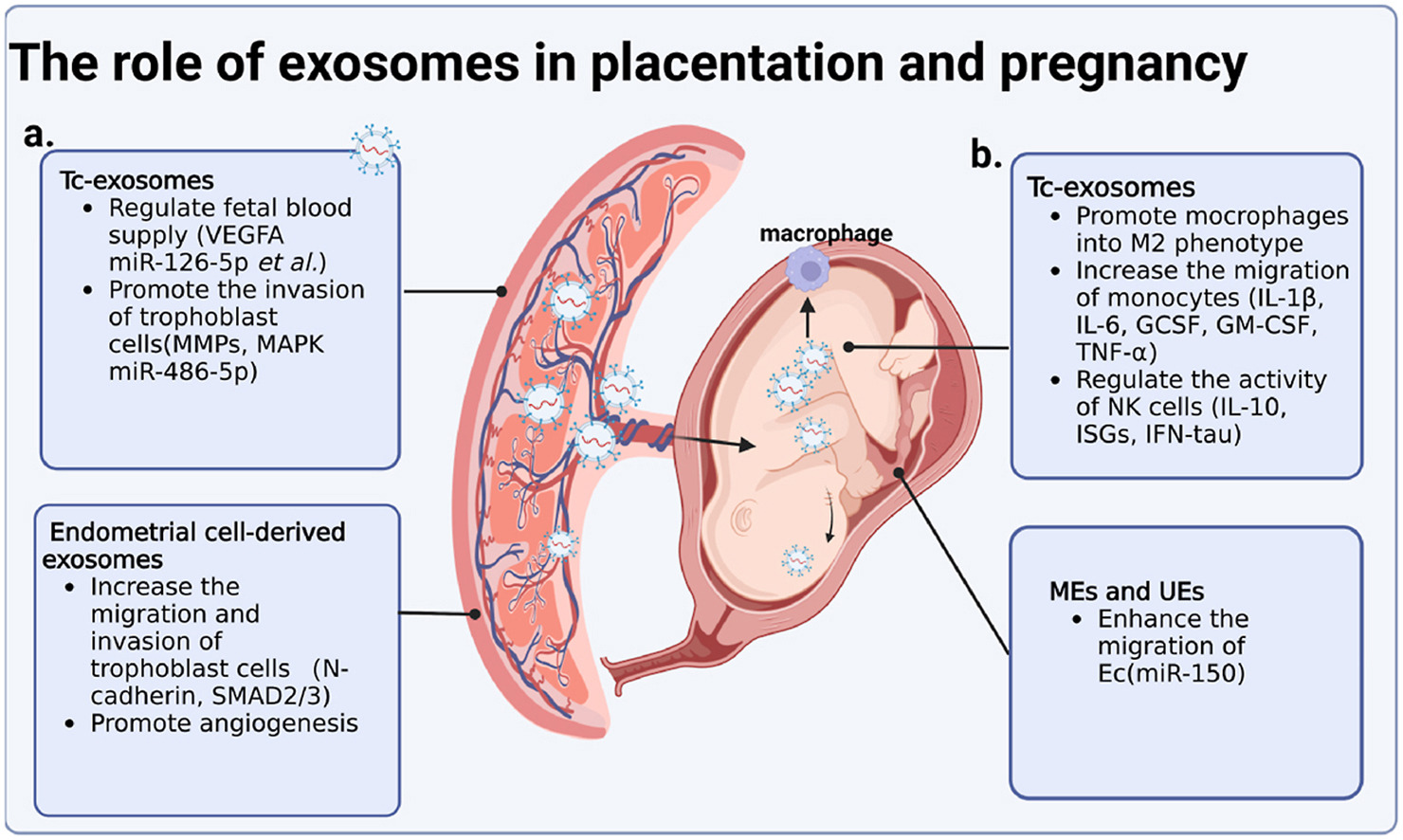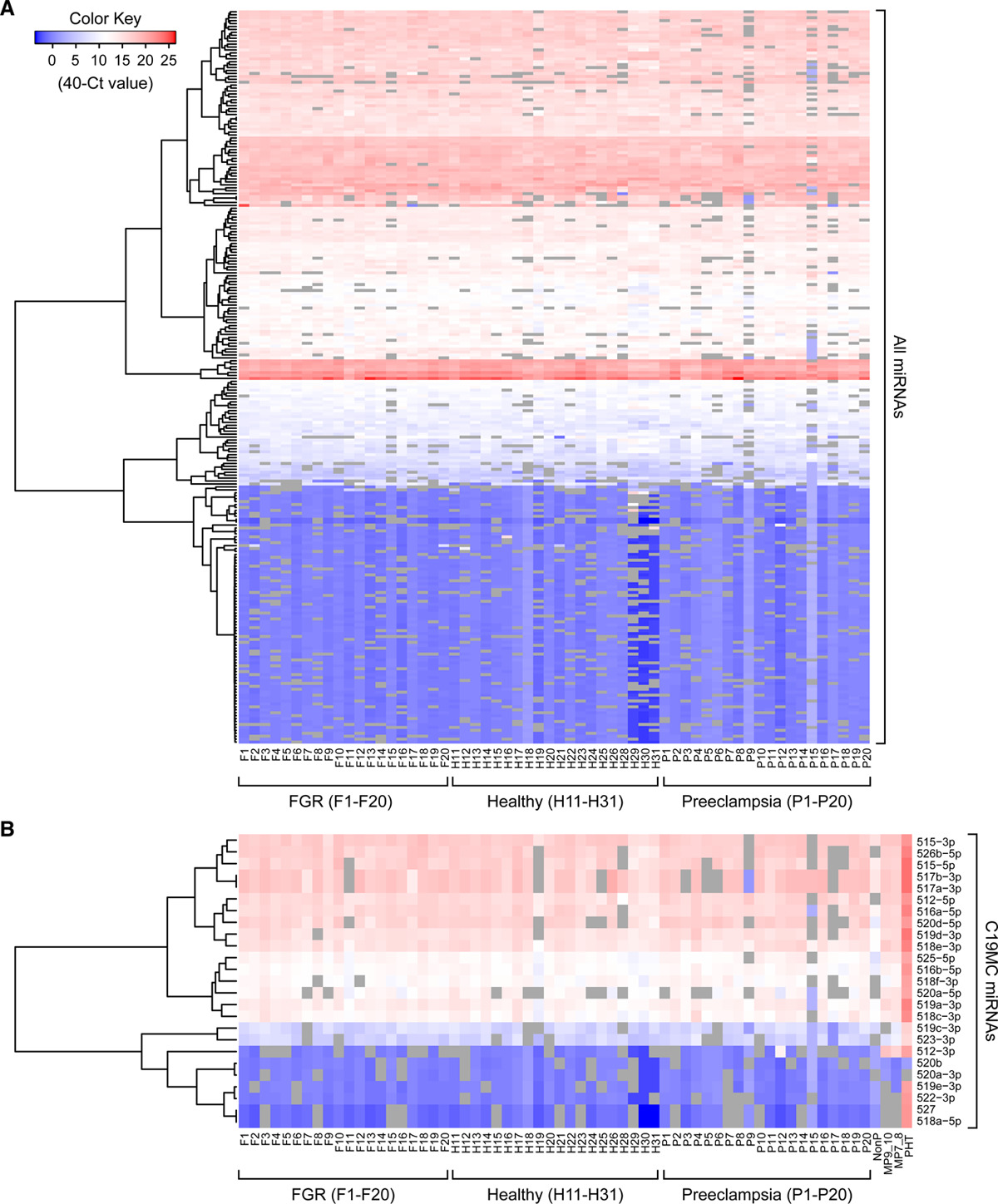Pregnancy Disorders Diagnosis-Applied Exosomes
Pregnancy Disorders Diagnosis-Applied Exosomes leverages high-throughput sequencing, proteomics, digital PCR, and other advanced technologies to analyze nucleic acids and proteins carried by exosomes, thereby discovering disease-specific biomarkers associated with pregnancy disorders for non-invasive diagnosis and dynamic monitoring during pregnancy.
Pregnancy disorders, such as preeclampsia (PE), gestational diabetes mellitus (GDM), gestational hypertension (GH), and fetal growth restriction (FGR), pose significant clinical challenges that impact maternal and fetal health. Early diagnosis of these conditions is crucial for reducing pregnancy complications and improving pregnancy outcomes.
Exosomes are nanoscale vesicles released by cells into body fluids, carrying various biomolecules, including proteins, miRNAs, and circular RNAs (circRNAs), and play essential roles in intercellular communication and pathological regulation. Pregnancy-associated exosomes originate from the placenta, maternal tissues, and fetus and are abundantly present in maternal plasma, amniotic fluid, and urine. Due to their high stability and tissue specificity, exosomes serve as a valuable source of biomarkers for studying pregnancy disorders. The role of exosomes in maternal-fetal communication during pregnancy has been well established. Investigating exosomal pathways in both normal and pathological pregnancies will contribute to the development of early diagnostic technologies for assessing pregnancy complications and fetal genetic disorders.

Chen C. et al. Materials Today Bio. 2023.
Leveraging an advanced experimental platform and extensive analytical expertise, MtoZ Biolabs provides exosome extraction and comprehensive exosome analysis services, including but not limited to exosomal proteomics, exosomal metabolomics, and exosomal small RNA sequencing. These services facilitate the identification of specific molecular biomarkers from pregnancy-related exosomes, driving advancements in Pregnancy Disorders Diagnosis-Applied Exosomes.
Service Advantages
1. Advanced Analysis Platform: MtoZ Biolabs established an advanced exosome analysis platform, guaranteeing reliable, fast, and highly accurate analysis service.
2. One-Time-Charge: Our pricing is transparent, no hidden fees or additional costs.
3. High-Data-Quality: Deep data coverage with strict data quality control. AI-powered bioinformatics platform integrates all exosome analysis data, providing clients with a comprehensive data report.
Applications
Research on Pregnancy Disorder Diagnosis
For example, studies have found that the concentration of placental exosomes in the plasma of patients with gestational hypertension (GH) and gestational diabetes mellitus (GDM) is significantly higher than that in normal pregnant women. This suggests that analyzing pregnancy-related exosomes holds promise for identifying potential biomarkers for diagnosing pregnancy disorders.
Prenatal Screening Research
Analysis of exosomes derived from amniotic fluid or placenta can be used to identify biomarkers associated with fetal congenital diseases or genetic disorders, enabling prenatal screening for certain conditions before birth.
FAQ
Q. What Exosome Isolation Methods do you Use?
MtoZ Biolabs offers multiple exosome isolation strategies, including ultracentrifugation, size-exclusion chromatography (SEC), and immunoaffinity capture. The specific method is selected based on the sample type and downstream application requirements.
Q. How to Verify the Origin and Integrity of Exosomes?
MtoZ Biolabs employs various experimental techniques, such as transmission electron microscopy (TEM), nanoparticle tracking analysis (NTA), and Western blot, to ensure the exosomes' origin, purity, and integrity.
Case Study
This study analyzed the exosomal miRNA expression profiles in the plasma of preeclampsia (PE) patients and healthy pregnant women, revealing that miR-210, miR-155, and miR-1233 were significantly upregulated in PE patients. These miRNAs are primarily involved in placental hypoxia adaptation, inflammatory signaling regulation, and angiogenesis inhibition, suggesting their crucial role in the pathogenesis of PE. Additionally, receiver operating characteristic (ROC) curve analysis demonstrated that these miRNAs exhibit high diagnostic performance, indicating that plasma exosomal miRNAs could serve as early biomarkers for PE, facilitating disease screening and personalized management.

Li H. et al. Hypertension. 2020.
How to order?







